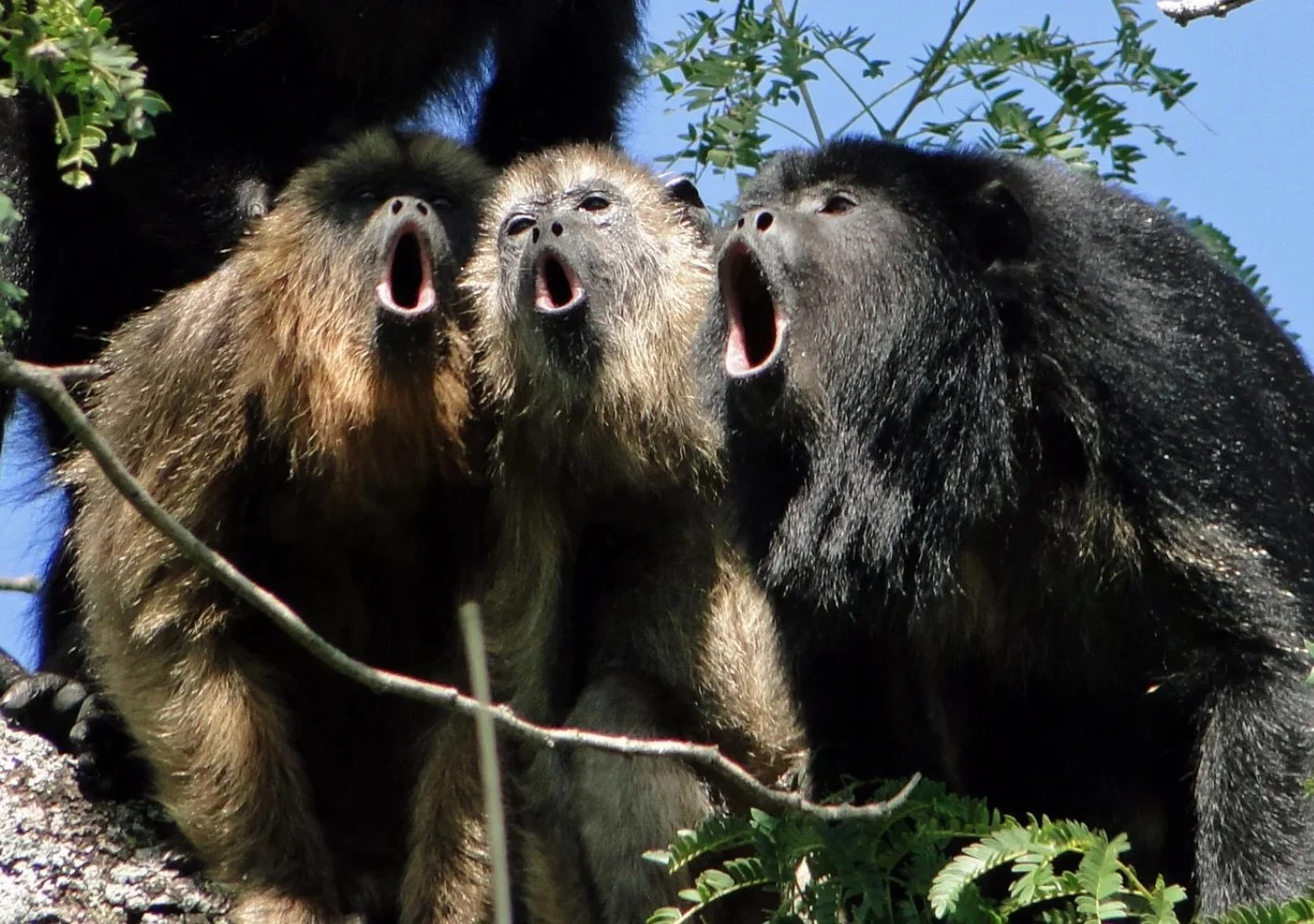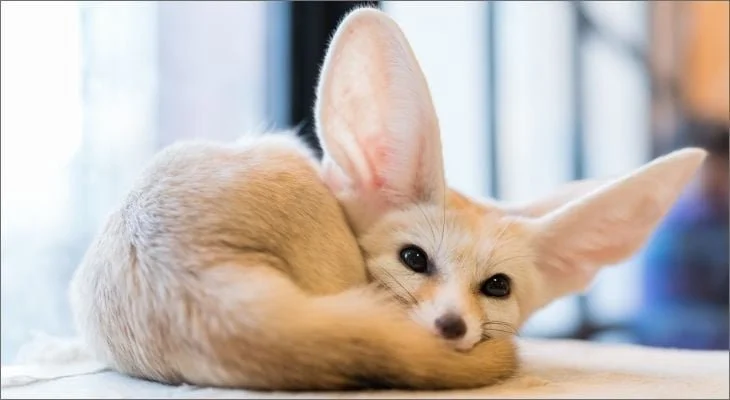By The Landlord
“Basic English corresponds to about 1,000 words. Chimpanzees are already accomplished in vocabularies exceeding 10 percent of that number.” – Carl Sagan, The Dragons of Eden: Speculations on the Evolution of Human Intelligence
“Dolphins produce signature whistles, which are high-pitched sounds with a modulation that is unique for each individual ... Females keep the same melody for the rest of their lives, whereas males adjust theirs to those of their closest buddies, so that the calls within a male alliance sound alike.” – Frans de Waal, Are We Smart Enough to Know How Smart Animals Are?
I heard the gnus today, oh boy. Manatee in the Sahara? Elvis in the gecko? Show me the way to armadillo. There's plenty of other howlers to be excused this week of course, not least the loudest land mammal, that big broadcasting hairy town cryer of a primate, who due to an enlarged hyoid bone, helps their guttural growls be heard up to three miles away. But this week, if they come up in song, they can really sing out.
Animals have a rich language us humans mostly can't even begin grasp, with vast amounts of their vocabulary also expressed through bodily gestures, glances and olfactory signals, something as a species we've primarily lost, but the animal kingdom also produces a vast array of sounds. Perhaps for our ancestors, that menagerie was the first music humans ever heard. It signalled the bright colourful spectrum of nature, the exciting call of the wild, of all kinds of matings and warnings and wonders, of potential food, a curious rustle in the undergrowth, but if that was a large bear, or the cleverly curling, percussive diamond-back, possibly also the very last death rattle of the life's brief symphony.
So this week is all about animal sounds used in different spheres and genres of music, whether bringing field recordings and samples to the fore, or as background, or even those mimicked by the human voice or by instruments. It’s a vast sonic language, mostly beyond our understanding, but with a more subconscious appreciation. So this might include highly specialised artists who have undergone intricate studies, to examples more random and spontaneous, pop songs in which a pet dog might have added some spontaneous howls and barks in the studio.
We've previously touched on songs using birdsong and calls inspired from this piece and these beautiful playlists, and those brilliant ornithological singers, from the amazing ventriloquist lyrebird to the beautiful blackbird and robin, the constantly riffing chiffchaff or songthrush, the soaring nightingale, lark, or the tremolo of the common loon, any could come up again in previously unchosen examples, but perhaps to create much bigger musical menagerie, non-feathered animals, as well as insects, should be the primary focus.
Examples used in other past playlists include L’Elephant by Tom Tom Club and The Invisible Dog by Electrelane, and for birdsong, Peanut Duck attributed to Marsha Gee, but there's still a vast jungle out there to explore, from classical composers such as Vivaldi to Vaughan Williams, Saint-Saëns to Sibelius, Ferd Grofé to Einojuhani Rautavaara, Olivier Messiaen to Pauline Oliveros.
Or you may choose to delve into more obscure specialists, such as clarinetist and jazz composer David Rothenberg, who has extensively studied and played along with insect sounds, bird and whale song. Or perhaps jungle work of microphone wanderer Bernie Krause, or eccentric experimentalist Paul Winter, who with that name perhaps has appropriately played his saxophone along to howling wolves.
Jungle noises often seem to accompany to extraordinary voice of Peruvian tour-de-force Yma Sumac for example, while the world of pop and prog and rock is rich in animal sounds, from Beatles to Pink Floyd to Talk Talk and beyond and even in between the some sounds of a certain heavy metal band, there are even examples of chirruping guinea pigs.
These are mere taster ideas to lure you in, but let's also explore some extraordinary sounds direct from the animal kingdom. Animal sounds inspire deep-seated instinctive human reactions, from the alarming and frightening to the strange and rather soothing, from yelps of distress to barks of warning, the mimicking of human babies in cat meows, to soothing purrs. The complex range of whale songs that can travel thousand of miles, all of this a music that captures the pains and passions and pleasures of being alive.
Some animal sounds, surprising in their depth and range, go beyond the human hearing spectrum but may also still affect us in some subliminal way.
Elephants can emit low frequency rumbles, particularly females before giving birth, bringing the rest of the herd into protection mode.
Bats emit high-pitched sound beyond our range for echolocation, but sometimes it's so loud it can deafen them, so they have evolved the ability to disable part of their middle ear to call, but enable it again to listen. It’s a striking piece of electronica:
Mating-call cicadas can sing out at 100 decibels, while the coqui frog's call is thought to be two-fold, the 'co' sound as warning to defend territory, while the higher pitched 'qui' is to attract females, covering two song topics in one. Watch how it warms up first with single notes:
And then there are some sounds which seem unlikely and barely imaginable, such as the male kapako's booming sound, which can happen non-stop for eight hours, a sort of bass drum created by a muscular inflation of chest and throrax.
How about these rather surprising and surreal sounds by baby rhinos?
And then again, what sound might you expect to hear from an excited koala? That’s certainly unusual, mate …
But the entire animal orchestra is at your disposal. Horses, pigs, dogs, cats and other quadropeds offer all sorts of familiar vocal and movement sounds. But what those of an aardvark t binturong, civet or capybara, ocelot of okapi or otter, pangolin, penguin, uakari, or zebu?
This week's sharp-eared zoomusicologist is the excellent Uncleben! Round up your animal sound in songs and music ideas and place them in comments below for deadline at 11pm UK time on Monday, for playlists published next week. We're all ears ...
Fennec fox
New to comment? It is quick and easy. You just need to login to Disqus once. All is explained in About/FAQs ...
Fancy a turn behind the pumps at The Song Bar? Care to choose a playlist from songs nominated and write something about it? Then feel free to contact The Song Bar here, or try the usual email address. Also please follow us social media: Song Bar Twitter, Song Bar Facebook. Song Bar YouTube, and Song Bar Instagram. Please subscribe, follow and share.
Song Bar is non-profit and is simply about sharing great music. We don’t do clickbait or advertisements. Please make any donation to help keep the Bar running:


